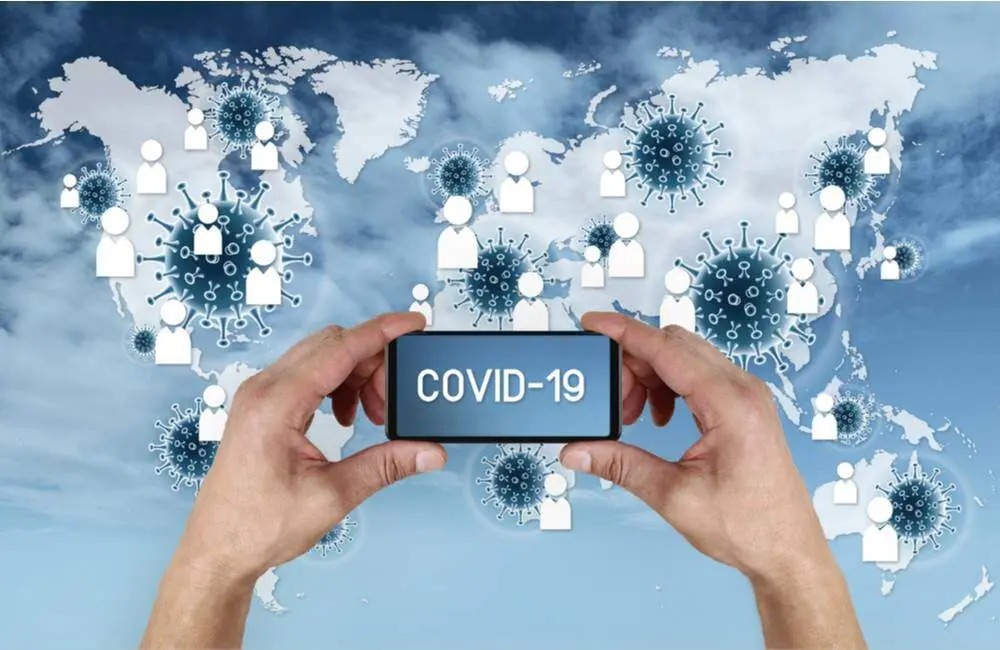Insights from the School of Science and Engineering
Healthcare analytics is the key to understanding, mitigating, and eventually vaccinating against COVID-19. Applying rigorous, data-based analysis and pattern recognition allows for informed decision-making and effective response in a novel, fast-moving global health crisis.
In general, healthcare analytics employs principles of data science, machine learning, and artificial intelligence to parse large amounts of raw data. These data provide researchers with discernible patterns, trends, and insight applicable to population health concerns.
COVID-19 is a prime example of the efficacy of healthcare analytics. Applying rigorous, data-based analysis and pattern recognition allows for informed decision-making and effective response in a novel, fast-moving global health crisis.
COVID-19 healthcare analytics provide the data, means, and insight for effective contact tracing, disease projections, population-specific protocols, and finding a safe vaccine.
As Ruchica Sharma writes in Health Tech Advisor, the role of healthcare analytics is pulling “the signal from the noise,” and with COVID-19, there is a lot of noise.
Gleaning the signal from that noise shines a bright spotlight on the importance of healthcare analytics in the Information Age.
Let’s use this spotlight on the current pandemic to explore how healthcare analytics can help find solutions to complex challenges.
Frontline Analytics: Contact Tracing
Early in the pandemic, tech giants Google and Apple launched an exposure notification API for public health agencies to use in their apps. The goal of the Bluetooth-enabled system is the rapid notification of anyone who has been near a person infected with COVID-19.
When alerted to contact their local public health agency, the information provided by the user helps monitor, analyze, and potentially slow the spread of the disease.
Predictive Healthcare Analytics: Mapping Seasonal Disease Spread
Last spring, researchers at Lawrence Berkeley National Laboratory began a project using machine learning algorithms to predict how the changing seasons would affect the spread of COVID-19. The algorithms analyzed huge datasets covering a multitude of environmental, social, and health population parameters.
Throughout the pandemic, local, state, and federal healthcare professionals have urged social distancing and wearing masks and enforced quarantine measures. These policies and protocols are based on population health data forecasting outcomes based on human behavior and prescriptive interventions from mapping disease spread.
Hospitals and other healthcare facilities also use data to forecast resource allocation and manage an often tight supply chain.
Big data, machine learning, and predictive analysis are vital tools used in a variety of contexts to manage and predict every aspect of the pandemic.
Finding a Vaccine
Perhaps the greatest task to which we can apply the methods and tools of healthcare analytics is to find a safe, effective vaccine for COVID-19.
Researchers from the Michigan State University Foundation are using deep learning models to focus on a specific SARS-CoV-2 protein known as its “main protease.”
The main protease of the virus is its fundamental “cog” essential in the process of making copies of itself. Once the main protease is identified, drugs can be developed that interrupt replication of the pathogen.
These big data, deep learning tools will pull the “signal from the noise” in the search for a vaccine. Bringing this analytical power to bear may bring a viable vaccine to market faster than ever before.
These few examples of COVID-19 healthcare analytics at work offer a brief glimpse into its importance. Not just with the current healthcare crisis, but for the future of healthcare.
Master of Science in Healthcare Analytics
COVID-19 is a consummate example of the importance of healthcare analytics for keeping entire populations healthy in the face of a crisis as well as the daily challenges of a complex system. A Master of Science in Healthcare Analytics degree combines the conceptual foundation and practical skills of data analytics with a broad understanding of healthcare in the United States, so graduates emerge ready to tackle pandemics like COVID-19 and other challenges of healthcare in the 21st century.
The Merrimack College MS in Healthcare Analytics degree program offers students the foundational concepts and practical skills required to become effective team members throughout the healthcare industry.
The program is designed with input from an industry advisory council. This input focuses coursework on the analytical training needed within the industry.
The program concludes with a capstone project giving students the opportunity to collect, analyze, and develop insights based on healthcare data of interest to them. Students work as consultants for local healthcare providers analyzing live data. This crucial step provides real-world experience and important contact with potential employers.
